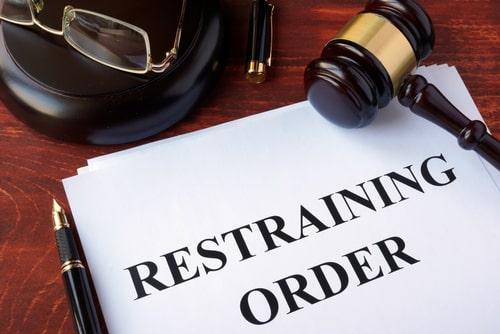Recent Blog Posts
How Can I Protect My Finances During and After Divorce?
 As the saying goes, money cannot buy happiness. However, there is no denying that finances play a critical role in our lives – especially for divorced individuals. Getting divorced is likely to have a massive impact on your financial situation. Property division, child support, and spousal maintenance are just some of the issues you may deal with during an Illinois divorce. Proper preparation before divorce and careful money management after divorce can help reduce the negative impact divorce has on your finances.
As the saying goes, money cannot buy happiness. However, there is no denying that finances play a critical role in our lives – especially for divorced individuals. Getting divorced is likely to have a massive impact on your financial situation. Property division, child support, and spousal maintenance are just some of the issues you may deal with during an Illinois divorce. Proper preparation before divorce and careful money management after divorce can help reduce the negative impact divorce has on your finances.
Knowledge is Key During Divorce
Many people are uninvolved in their household finances. If you typically left the financial decision-making up to your spouse, now is the time to start getting acquainted with your finances. You cannot make informed decisions about the terms of your divorce without knowing what you own and what you owe. Start by collecting financial documents such as:
- Tax returns
What to Do If You Are the Victim of Stalking in Illinois
 Domestic violence and abuse can take many different forms. Abusers often use intimidation and psychological manipulation to control their victims. Sometimes, this takes the form of stalking. If you have been the victim of stalking, you know just how frightening it can be. Stalking is considered a criminal offense in Illinois. If you have been the victim of stalking during a divorce or other family law issue, you should know that there are certain legal protections available to you. A “Stalking No Contact Order” is a legally enforceable court order that prohibits a stalker from contacting or coming near the victim.
Domestic violence and abuse can take many different forms. Abusers often use intimidation and psychological manipulation to control their victims. Sometimes, this takes the form of stalking. If you have been the victim of stalking, you know just how frightening it can be. Stalking is considered a criminal offense in Illinois. If you have been the victim of stalking during a divorce or other family law issue, you should know that there are certain legal protections available to you. A “Stalking No Contact Order” is a legally enforceable court order that prohibits a stalker from contacting or coming near the victim.
What Does Illinois Law Consider Stalking?
Stalking is defined by Illinois law as repeatedly contacting or following someone in such a way that the person fears for their safety or the safety of someone else and makes the person suffer emotional distress.
Common Questions About Child Support in Illinois
 Whether you are an unmarried parent or one that will soon be divorced, you may have several questions about child support. Illinois law requires both of a child’s parents to contribute to the child’s financial needs. Most commonly, this is accomplished by the parent with less parenting time paying child support to the parent with greater parenting time. Of course, child support is not always as straightforward as it seems.
Whether you are an unmarried parent or one that will soon be divorced, you may have several questions about child support. Illinois law requires both of a child’s parents to contribute to the child’s financial needs. Most commonly, this is accomplished by the parent with less parenting time paying child support to the parent with greater parenting time. Of course, child support is not always as straightforward as it seems.
How Much Child Support Does a Parent Pay?
The amount a parent pays in child support varies from case to case and is typically calculated using a set formula. The most influential factor in Illinois child support payments is the difference between the parents’ net incomes. The greater the difference between their respective incomes, the greater the paying parent’s contribution.
Does Child Support Decrease if Parents Have Equal Parenting Time?
You may wonder if a parent has to pay as much in child support if they are responsible for a significant portion of the parenting time (formerly called visitation). When both parents have 40 percent or more of the parenting time, meaning 146 overnights or more a year, this is called a “shared parenting” child custody arrangement. Child support may be decreased proportionally.
How Can I Get a Plenary Order of Protection in Illinois?
 Many are surprised to learn just how common domestic violence is in Illinois. Sadly, violence between spouses, romantic partners, family members, and housemates happens in millions of homes across the Prairie State. It is estimated that over 40 percent of women and 26 percent of men in Illinois have been victims of intimate partner violence or violence between current or former romantic partners.
Many are surprised to learn just how common domestic violence is in Illinois. Sadly, violence between spouses, romantic partners, family members, and housemates happens in millions of homes across the Prairie State. It is estimated that over 40 percent of women and 26 percent of men in Illinois have been victims of intimate partner violence or violence between current or former romantic partners.
If you have been abused by a family member or romantic partner, you are not alone. There are steps you can take to protect yourself and your children. One of the most important of these steps is seeking an order of protection.
A Plenary Order of Protection Can Last Two Years
In previous blogs, we have discussed the way an Emergency Order of Protection (EOP) can protect domestic violence victims from further abuse. EOPs are a crucial first step for many abuse victims. However, EOPs only last a few weeks. Plenary Orders of Protection are long-term protection orders which may prevent an abuser from contacting the victim, coming to the victim’s home or work, and more.
Top Questions About Divorce in Illinois
 Beginning the divorce process can be a daunting task. After all, most people have little experience dealing with legal issues prior to their divorce case. If you are like many people ending a marriage, you may have never stepped foot in a courthouse before. Understandably, you may feel confused and intimidated by the process. You may be unsure of what to expect. While each divorce case is different, most cases follow the same basic structure and involve similar concerns.
Beginning the divorce process can be a daunting task. After all, most people have little experience dealing with legal issues prior to their divorce case. If you are like many people ending a marriage, you may have never stepped foot in a courthouse before. Understandably, you may feel confused and intimidated by the process. You may be unsure of what to expect. While each divorce case is different, most cases follow the same basic structure and involve similar concerns.
How Do You File for Divorce in Illinois?
Every divorce begins with the divorce petition, technically called a Petition for Dissolution of Marriage in Illinois. One spouse, called the petitioner, files the paperwork with the court and the other spouse, the respondent, is expected to “respond” to the divorce petition. The respondent may choose to do nothing. In this case, the judge will make a “default judgment” which means that the divorce concludes without the respondent’s input on issues like the division of assets and debts, child custody, and child support. If you live in the Chicago area or have children, you may also need to file additional forms.
How Can I Get Visitation With My Kids as an Unmarried Father in Illinois?
 Research shows that fathers’ involvement in their children’s lives is associated with better academic achievement, intellectual functioning, and social skills. Children with absent fathers are more likely to suffer from mental health problems like depression. Unfortunately, some fathers do not see their kids as often as they want because they are unaware of their rights. If you have established the paternity of your child and you are not a danger to your child’s well-being, you may be able to secure visitation or parenting time. However, you may need to take certain steps to assert this right.
Research shows that fathers’ involvement in their children’s lives is associated with better academic achievement, intellectual functioning, and social skills. Children with absent fathers are more likely to suffer from mental health problems like depression. Unfortunately, some fathers do not see their kids as often as they want because they are unaware of their rights. If you have established the paternity of your child and you are not a danger to your child’s well-being, you may be able to secure visitation or parenting time. However, you may need to take certain steps to assert this right.
You Must Establish Paternity First
If you are interested in spending more time with your children, you may need to take certain steps to establish your parental rights. Before you are given the right to parenting time with your child, you must establish paternity. “Paternity” refers to the legal relationship between a father and his child.
What is Considered Abuse for an Illinois Order of Protection?
 Sadly, domestic violence and abuse are not uncommon in Illinois. Research shows that over 40 percent of women and over 25 percent of men in Illinois have suffered abuse from a spouse or romantic partner. No one should ever have to tolerate this type of mistreatment. Fortunately, there are legal protections available in Illinois that can help you escape an abusive relationship.
Sadly, domestic violence and abuse are not uncommon in Illinois. Research shows that over 40 percent of women and over 25 percent of men in Illinois have suffered abuse from a spouse or romantic partner. No one should ever have to tolerate this type of mistreatment. Fortunately, there are legal protections available in Illinois that can help you escape an abusive relationship.
If you are like many people, you may be unsure of whether the mistreatment you have endured counts as abuse. You may wonder, “Is psychological manipulation considered abuse?” or “What if I do not have physical marks from the abuse?” Read on to learn what is considered abuse according to Illinois law and what you should do if you have been abused by an intimate partner.
Abuse is Not Always Physical
When you picture an abused husband, wife, boyfriend, or girlfriend, you may picture someone with a black eye or other physical injuries. While physical abuse like punching, slapping, pushing, and kicking certainly is abuse, this is not the only type of abuse a person can endure.
Should I Get a Divorce or Legal Separation in Illinois?
 Knowing when a marriage relationship is truly over can be nearly impossible. Many spouses waver between calling it quits and pursuing reconciliation for months or years before filing divorce paperwork. If your marriage is on rocky ground, you may be researching your options. Legal separation does not end a marriage, but it can offer important legal and financial protections. Read on to learn about the difference between divorce and legal separation and the advantages and disadvantages of each option.
Knowing when a marriage relationship is truly over can be nearly impossible. Many spouses waver between calling it quits and pursuing reconciliation for months or years before filing divorce paperwork. If your marriage is on rocky ground, you may be researching your options. Legal separation does not end a marriage, but it can offer important legal and financial protections. Read on to learn about the difference between divorce and legal separation and the advantages and disadvantages of each option.
Divorce Versus Legal Separation
When a married couple divorces, their marriage is terminated and spouses are free to remarry. Legal separation, on the other hand, preserves the marriage relationship. Legal separation is more than being physically separated or living apart. When a couple is legally separated, the marriage still exists, but the spouses are subject to binding court orders regarding divorce issues like property division and child support. This makes legal separation an attractive option for spouses who are not ready to divorce but still want to address these issues. (Property division in a legal separation differs from property division in a divorce in that the court only divides property if the spouses agree. Otherwise, asset division is reserved by default.)
Should I Get an Emergency Order of Protection?
 Domestic violence and abuse are extremely prevalent in today’s society. However, we rarely talk about it. Some victims of domestic violence believe that the abuser will change or that the abuse was an isolated event. Others are unsure of whether the mistreatment they are suffering is even considered abuse under Illinois law. If you have been assaulted, abused, or threatened by a family member, current or ex romantic partner, or current or former housemate, read on to learn about Emergency Orders of Protection in Illinois.
Domestic violence and abuse are extremely prevalent in today’s society. However, we rarely talk about it. Some victims of domestic violence believe that the abuser will change or that the abuse was an isolated event. Others are unsure of whether the mistreatment they are suffering is even considered abuse under Illinois law. If you have been assaulted, abused, or threatened by a family member, current or ex romantic partner, or current or former housemate, read on to learn about Emergency Orders of Protection in Illinois.
Is The Situation “Bad Enough” for a Protection Order?
Men and women of all ages, ethnicities, and income levels can find themselves the victims of threats, intimidation, or violence. No one should ever be forced to tolerate a situation that makes them afraid for their safety or the safety of their children. However, many victims never get a protection order or restraining order because they assume that the mistreatment has not crossed the line into abuse.
How Commingled Assets Can Complicate Your Illinois Divorce
 In a marriage, “yours” and “mine” become “ours.” Unfortunately, undoing this financial entanglement during divorce is one of the most complicated parts of the divorce process. Property held by the marital estate, or marital property, is jointly held by both spouses. Marital property must be properly valued and divided between the spouses in a divorce. Separate property, on the other hand, belongs only to one spouse. Typically, property either spouse acquires during the marriage is marital property and property a spouse owned prior to the marriage is separate property. However, differentiating between marital property and separate property is not so straightforward when assets have been commingled or mixed.
In a marriage, “yours” and “mine” become “ours.” Unfortunately, undoing this financial entanglement during divorce is one of the most complicated parts of the divorce process. Property held by the marital estate, or marital property, is jointly held by both spouses. Marital property must be properly valued and divided between the spouses in a divorce. Separate property, on the other hand, belongs only to one spouse. Typically, property either spouse acquires during the marriage is marital property and property a spouse owned prior to the marriage is separate property. However, differentiating between marital property and separate property is not so straightforward when assets have been commingled or mixed.
Property Rights During a Marriage
Illinois divorce cases are subject to the rules of equitable distribution. Spouses are entitled to a fair share of the marital estate. Spouses may negotiate a property division agreement, or, if they are unable to agree, the court will determine how the marital property should be divided.





 312-702-1293
312-702-1293






